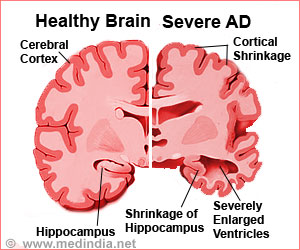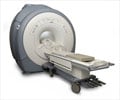Detecting Alzheimer's disease in its early stages could now be possible with a recently developed non-invasive MRI method.

The team of Northwestern University scientists and engineers has developed this approach that can detect the disease at the earliest stages of the disease, well before typical Alzheimer's symptoms appear.
Led by neuroscientist William L. Klein and materials scientist Vinayak P. Dravid, the research team developed an MRI (magnetic resonance imaging) probe that pairs a magnetic nanostructure (MNS) with an antibody that seeks out the amyloid beta brain toxins responsible for onset of the disease. The accumulated toxins, because of the associated magnetic nanostructures, show up as dark areas in MRI scans of the brain.
Neuroscientist William L. Klein said that the ability to detect amyloid beta oligomers, was important for two reasons: amyloid beta oligomers are the toxins that damage neurons, and the oligomers are the first sign of trouble in the disease process, appearing before any other pathology.
This ability to detect the molecular toxins might one day enable scientists to both spot trouble early and better design drugs or therapies to combat and monitor the disease.
And, while not the focus of the study, early evidence suggested that the MRI probe improves memory, too, by binding to the toxins to render them "handcuffed" to do further damage.
Advertisement
Source-ANI














